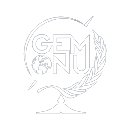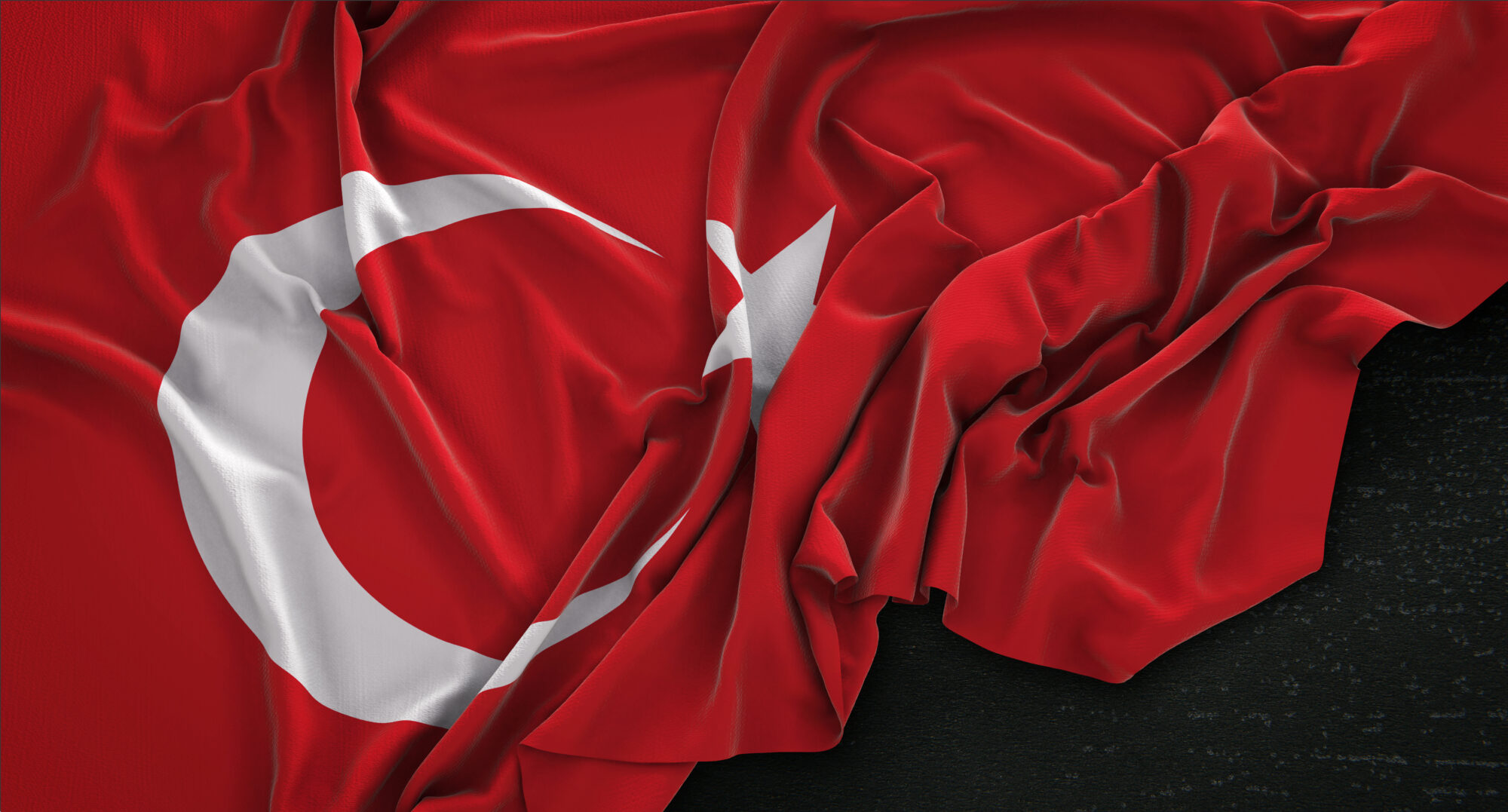Les relations diplomatiques entre la Turquie et l’Union européenne (UE) sont à fleur de peau, pourtant elles n’ont jamais autant été l’enjeu de discussions et de compromis. Certains parlent de diplomatie transactionnelle, qui favorise l’étude des dossiers de manière thématique. Le but pour la Turquie est de développer des échanges gagnants-gagnants. Pour Erdogan, il n’est plus question d’alliances ou de valeurs, mais de stratégie. L’Union européenne peine à répondre à ce changement d’attitude du fait du renouveau diplomatique de la Turquie.
Une ambition européenne oubliée
En juillet 2023, la Turquie a finalement levé son veto pour l’adhésion de la Suède à l’Organisation du traité de l’Atlantique nord (OTAN) sous fond de négociations multilatérales. En effet, accusé de chantage, le président Recep Tayyip Erdogan a demandé à ce que l’adhésion de son pays à l’Union européenne soit relancée en échange de l’accession de la Suède à l’OTAN. Cette adhésion, bien qu’improbable, pointe l’hypocrisie européenne, qui fait attendre la Turquie depuis 40 ans à la porte de l’Europe. Les ambitions d’Erdogan ont depuis longtemps abandonné l’idée de rejoindre l’UE, tandis que cette dernière refuse catégoriquement l’accès de la Turquie à cause de la dégradation des droits humains et de l’Etat de droit en Turquie. Ce que le chef d’Etat, nouvellement réélu en mai 2023, attend, n’est pas l’ouverture de la porte d’entrée dans l’Union européenne, mais bien l’ouverture d’une porte annexe qui viserait à obtenir l’élargissement de l’union douanière et une exemption de visa pour les citoyens turcs. Autrement dit, la Turquie négocie l’entrée de la Suède dans l’OTAN contre des mesures économiques favorables à la Turquie et une liberté de mouvement accrue pour ses citoyens.
Cette décision est également appuyée par la volonté de la Turquie d’obtenir l’aval du Sénat américain pour une livraison d’avions de combat F-16 américains au pays turc. Le chantage n’est pas unilatéral puisque les Etats-Unis sont accusés d’en avoir fait usage en premier lieu en conditionnant la livraison d’armes à la levée du véto turc à l’OTAN. Entre outre, la Turquie dispose d’un moyen de pression non négligeable sur l’Europe : l’accord conclu en 2016 sur le renforcement des frontières turco-européennes, afin de limiter l’afflux de migrants dans l’UE. La Turquie recevait en échange un financement européen pour mettre en place ces mesures.
Une stratégie diplomatique payante ?
La stratégie diplomatique turque visant à étendre sa puissance stratégique semble gagnante. La puissance qui s’impose de plus en plus en Afrique et au Moyen-Orient s’éloigne des intérêts européens. Le renouveau diplomatique de la Turquie favorise un discours anti-colonialiste et positif . Elle se montre solidaire avec les pays les moins riches, amicale avec les puissances montantes du Proche et Moyen-Orient. Elle se place aussi comme défenseuse des minorités, soutenant par exemple la question palestinienne quand les Etats arabes s’en détournent au profit de relations diplomatiques et économiques avec Israël. La Turquie essaye de prendre une place plus importante sur la scène internationale à l’exemple des BRICS (Brésil, Russie, Inde, Chine, Afrique du Sud). Elle relance les débats sur la gouvernance mondiale et renforce son pouvoir de médiation. En effet, elle s’est imposée comme médiateur dans le conflit russo-ukrainien dans les négociations céréalières. Cela s’en se mettre à dos la Russie, avec qui elle souhaite maintenir des relations amicales. La Turquie, poussée par son président et la montée du nationalisme, abandonne l’idée d’une Turquie européenne et soutient une Turquie mondiale et solidaire des puissances émergentes. Sa position à l’OTAN lui garantit pour autant un canal de discussion direct avec les Etats-Unis et l’Europe.
La question palestinienne : la divergence entre l’UE et Erdogan
Le président turc Recep Tayyip Erdogan a annoncé l’annulation de son déplacement en Israël, malgré un rapprochement des deux pays ces derniers mois. Après la contre-offensive israélienne contre le Hamas sur la bande de Gaza cette semaine, le président a déclaré que les turcs ont été “abusés” par Israël, malgré une rencontre favorable à un projet d’avenir commun en septembre dernier. Le président a décrié l’“inhumanité” de l’armée israélienne dans sa contre-attaque lancée le 7 octobre. Il estime notamment que le Hamas n’est pas une organisation terroriste. Ces tensions ont ranimé les critiques contre l’Occident dans le pays. Une fois encore, Erdogan a tenu à relever “l’hypocrisie” des puissances européennes dans le traitement différencié des victimes de la guerre en Ukraine et en Palestine. Il a également critiqué l’action du Conseil de sécurité des Nations unies en la qualifiant de “biaisée”. Le président, soutenu par sa population et son parti l’AKP (Parti de la justice et du développement), islamo-conservateur, a finalement appelé à une désescalade du conflit. Il s’est proposé comme médiateur et garant dans ce conflit afin de trouver une paix durable, sous la forme de la création d’une “Palestine indépendante”.
Ces déclarations ont à nouveau placé la Turquie comme un acteur diplomatique non-occidental et actif sur la scène internationale. Ces relations avec l’Union européenne et les Etats-Unis sont de plus en plus soumises à des négociations tendues face à l’absence de volonté des puissances occidentales de construire des relations diplomatiques amicales durables. La stratégie diplomatique de la Turquie est centrée sur un objectif : devenir indépendante de l’Occident.
Diplomatic relations between Turkey and the West: a case-by-case strategy
Diplomatic relations between Turkey and the European Union (EU) are highly strung, yet they have never been so much at stake in discussions and compromises. Some speak of transactional diplomacy, which favours the study of issues on a thematic basis. Turkey’s aim is to develop win-win exchanges. For Erdogan, it’s no longer a question of alliances or values, but only of strategy. The European Union is struggling to respond to this change in attitude, due to Turkey’s diplomatic renewal.
A forgotten European ambition
In July 2023, Turkey finally lifted its veto on Sweden’s accession to the North Atlantic Treaty Organization (NATO) against a backdrop of multilateral negotiations. Accused of blackmail, President Recep Tayyip Erdogan demanded that his country’s membership to the European Union be revived in exchange for Sweden’s accession to NATO. Although unlikely, such a move highlights the hypocrisy of Europe, which has kept Turkey waiting at Europe’s doorstep for 40 years. Erdogan’s ambitions have long since abandoned the idea of joining the EU, while the latter categorically refuses Turkey access because of the degradation of human rights and the rule of law. What the head of state, newly re-elected in May 2023, is waiting for is not the opening of the front door to the European Union, but the opening of a side door that would seek to obtain an enlarged customs union and visa-free access for Turkish citizens. In other words, Turkey is negotiating Sweden’s entry into NATO in return for pro-Turkish economic measures and greater freedom of movement for its citizens.
This decision is also supported by Turkey’s desire to obtain US Senate approval for the delivery of American F-16 fighter jets to Turkey. The blackmail is not unilateral, since the United States is accused of having used it in the first place, by making arms deliveries conditional on the lifting of Turkey’s NATO veto. In addition, Turkey has a significant means of exerting pressure on Europe: the agreement concluded in 2016 on the reinforcement of Turkish-European borders, in order to limit the influx of migrants into the EU. In exchange, Turkey received European funding to implement these measures.
A successful diplomatic strategy?
Turkey’s diplomatic strategy to extend its strategic power seems to be winning the day. The power that is increasingly asserting itself in Africa and the Middle East is moving away from European interests. Turkey’s diplomatic renewal favours a positive, anti-colonial discourse. It shows solidarity with the less wealthy countries, and friendship with the rising powers of the
Near and Middle East. It is also a defender of minorities, supporting the Palestinian question when Arab states turn away from it in favour of diplomatic and economic relations with Israel. Turkey is trying to play a more prominent role on the international stage, following the example of the BRICS (Brazil, Russia, India, China and South Africa). It is reviving debates on global governance and strengthening its mediation power. Indeed, Turkey has imposed itself as mediator in the Russian-Ukrainian conflict in the cereals negotiations. This was achieved by antagonizing Russia, with whom Turkey wishes to maintain friendly relations. Turkey, spurred on by its president and rising nationalism, is abandoning the idea of a European Turkey and supporting a global Turkey in solidarity with the emerging powers. Its position in NATO, however, guarantees it a direct channel of discussion with the United States and Europe.
The Palestinian question: the divergence between the EU and Erdogan
Turkish President Recep Tayyip Erdogan has announced the cancellation of his trip to Israel, despite a rapprochement between the two countries in the recent months. Following Israel’s counter-offensive against Hamas in the Gaza Strip this week, the president declared that the Turks had been « abused » by Israel, despite a favourable meeting on a common future project last September. The President decried the « inhumanity » of the Israeli army in its counter-attack launched on October 7. In particular, he believes that Hamas is not a terrorist organization. These tensions have rekindled criticism of the West in the country. Once again, Erdogan pointed to the « hypocrisy » of European powers in their differential treatment of war victims in Ukraine and Palestine. He also criticized the action of the United Nations Security Council, calling it « biased ». The president, supported by his population and his Islamo-conservative AKP (Justice and Development Party), finally called for a de-escalation of the conflict. He offered to act as mediator and guarantor in the conflict, with a view to finding a lasting peace in the form of the creation of an « independent Palestine ».
These declarations have once again positioned Turkey as an active, non-Western diplomatic player on the international stage. Its relations with the European Union and the United States are increasingly subject to tense negotiations in the face of the Western powers’ unwillingness to build lasting, friendly diplomatic relations. Turkey’s diplomatic strategy is focused on one objective: to become independent of the West.

